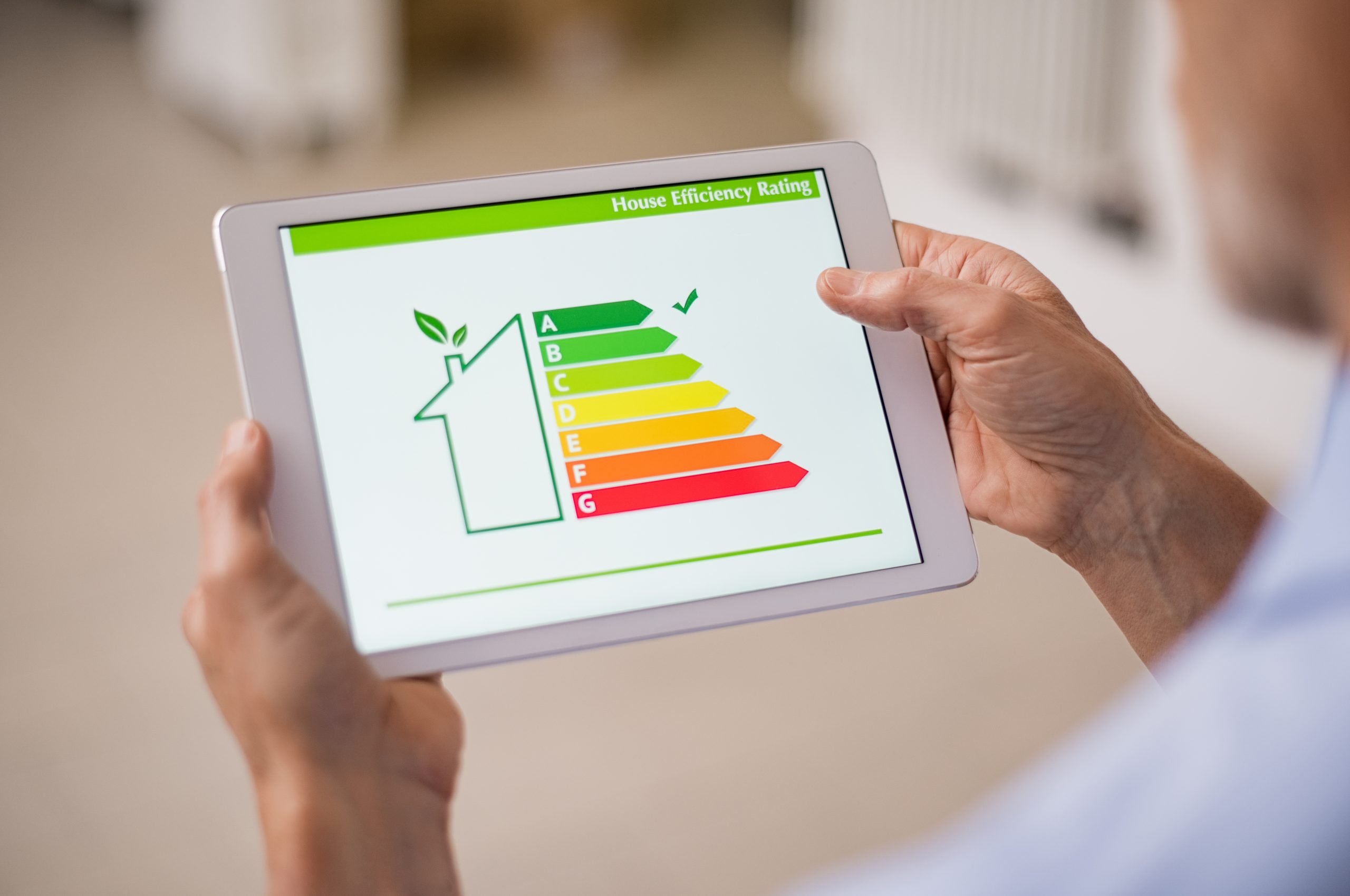Saving energy is particularly important to householders right now, due to soaring bills. The current energy crisis has impacted 22 million UK consumers and bills are expected to increase again when watchdog Ofgem announces the new winter energy price cap.

©Rido / Adobe Stock
Tenants are likely to be hit especially hard since they can’t carry out any major home improvements to improve energy efficiency and reduce costs. However, landlords can offer their support by carrying out energy efficiency home upgrades where possible and providing advice on making savings.
This is the ideal time to carry out any home improvements before the colder winter weather strikes and bills go up again. As a landlord, it’s important to meet Minimum Energy Efficiency Standards to help keep costs down for your tenants.
What is the Energy Performance Certificate?
The Energy Performance Certificate, or EPC, can help both landlords and tenants to understand the energy performance of the rental property, identifying areas for improvement. It rates the energy efficiency from the most efficient A-rating to the least efficient G-rating.
Landlords must get a new EPC every ten years and provide their tenants with an acceptable efficiency performance. Achieving a good EPC rating means tenants can keep energy bills lower and reduce their property’s carbon footprint. This will make a rented property more affordable for existing and future tenants.
New tenants should be provided with a copy of their home’s EPC when they move in. They can use the information to estimate how much their energy bills are likely to cost in their new home.
Read on for advice on how you can help your tenants through the current energy crisis.
Insulation
Upgrade your rental properties’ loft insulation, as it reduces heat loss through the roof. This means your tenants will use less energy in heating their home.
When done properly, loft insulation should easily pay for itself through energy savings. It should also have a 40-year lifetime, making it a particularly good return on investment. It isn’t an easy job, even if you’re into DIY, and working in the loft requires extra care to avoid accidents.
Heating systems
Keep an eye on your boiler, as over time, central heating systems can grow less efficient – an older boiler can cost you more money. Upgrading to a new condensing boiler provides efficiency of around 90%, while a non-condensing boiler offers around 75% efficiency.
This difference may seem small, but it can lead to a saving of around £150 a year in an average semi-detached house. Boilers need replacing every ten to 15 years on average, depending on how well they have been serviced and maintained.
Draught proofing
Improving your properties’ draught-proofing is one of the most effective and cheapest ways to save energy and money. A professional can do the job, or if you feel comfortable, you can do it yourself. Simply block any gaps that let warm air out and cold air in. Keeping the warm air trapped inside means you will use less energy to keep your home warm.
The usual areas where draughts cause problem are doors, windows, chimneys, skirting boards, floorboards, pipework, loft hatches, cracks in walls and old extractor fans. Simple jobs include sealing around the edges of windows, buying draught excluders and fitting a new front door.
Energy efficient doors and windows
Invest in energy-efficient double-glazed doors and windows to reduce energy bills by up to £75 a year. This will also reduce your home’s carbon footprint and cut down the amount of heat lost into the atmosphere. Benefiting you and your tenant, less energy will be required to keep the property warm in winter, while the rented home will be a more attractive option for future tenants.
The latest UPVC windows permit heat to be retained inside your property, while enabling proper ventilation, so it is never stuffy.
LED light bulbs
Making the change to LED bulbs and other energy-efficient lighting technology is a very easy way of reducing electricity bills, particularly if you’re the landlord of a number of HMOs. The Energy Saving Trust says lighting accounts for 15% of an average household’s electricity bill. Simply switching to compact fluorescent lamps or LEDs can save up to £40 per household annually.
In recent times, the price of LEDs has gone down substantially, making them much more affordable. Thanks to new technology, they will also last longer, so they won’t need to be replaced as often. Some come with a ten-year warranty.
In an HMO, running an energy-efficient house can save you and your tenants a lot of money over time in utility costs. Many HMO landlords have utility bills included in the rent, so keeping costs down means there’s more chance of your tenants being able to cover the rent and avoid increases.
By working together, landlords and tenants can help save energy and keep running costs down during the current energy crisis.
